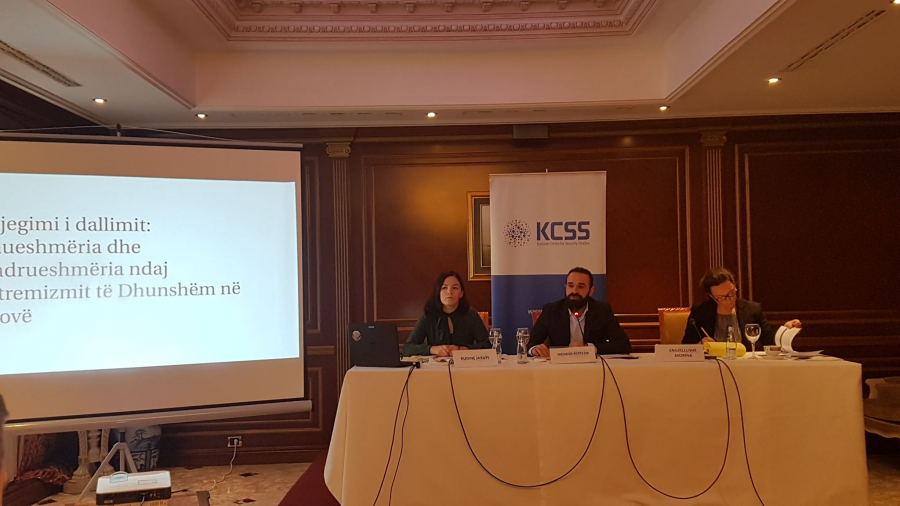25/10/2018

Kosovar Centre for Security Studies today on the 25th of October, has published the report ‘Accounting for the Difference: Vulnerability and Resilience to Violent Extremism in Kosovo’ in the framework of the Countering Violent Extremism Program, supported by Berghof Foundation and the German Federal Foreign Office.
This report is a qualitative study that sets out to understand and contextualise the community-level dynamics in areas that were either affected or unaffected by violent extremism in Kosovo in the course of the last six years. So far, most of the research into violent extremism conducted in the Western Balkans builds upon the push and pull factors that have incentivised dozens of individuals across the region to join terrorist organisations in the Middle East, primarily in Syria and Iraq.
In this study, researchers explore the in-country dynamics that may have encouraged or prevented violent extremism in a particular setting. The change of scope from individual factors to community based actors and factors that determine the path to radicalisation is likely to provide policymakers with urgent answers on targeted interventions that would address structural weaknesses and bolster particular strengths that may make communities at best resistant, or at the very least, better equipped to deal with future threats to their security. Hence, the goal of this research is to identify the factors that make communities vulnerable or resilient, and to try to gauge, through a plethora of actors, the impact of such factors on the prevention of violent extremism. The remainder of this report will discuss the research design and terminology adopted for the purpose of this research (Section 2), the country background (Section 3), the key findings on factors and actors influencing community resilience or vulnerability to violent extremism (Section 4), an assessment of PVE programmes as well as their potential linkages with peacebuilding initiatives (Section 5), and finally some concluding observations and recommendations (Section 6).
This country case study on Kosovo was produced, alongside three others covering Albania, Bosnia-Hercegovina and Macedonia, in the framework of a participatory research project on “Opportunities for Preventing Violent Extremism in the Western Balkans”.